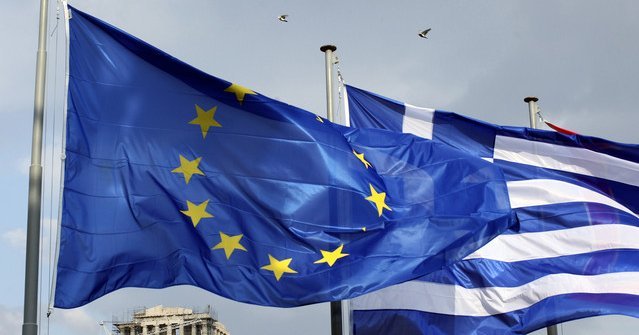Greece’s financial and economic situation is still in hot water and the turnout at the last political election did not help. Without a proper government, Greece cannot take the necessary painful decisions to stem the crisis and to rebalance the national budget. The austerity measures put into force in the country over the last few months pained the Greeks that are to vote massively for Syriza, a far-left party, at the next elections which is due to ask for a renegotiation of the EU-Bce-IMF bailout conditions of last March. “The tax increases and the spending cuts are a crime against Greek people”, the leader of the Syriza party stated last week. How such a move could undermine the relationship with the northern countries and, some say, the Greece’s eurozone membership, is straightforward. The Greek vote on June 17 will take place amidst worries for the rest of Europe which is ready to give up on the international support to Athens.
Even if some may appreciate a Greek exit from the euro – a ’Grexit’ as it is called – this would cast other eurozone countries in hotter water. At a first sight one may think that a Greek exit would allow the country to restore control over its own monetary policy, printing out cheaper currency which would help match wages with workers’ productivity (keeping in mind the drastic reductions imposed on salaries and pensions since the crisis broke out). Most of all, one may think that without Greece the whole eurozone would be finally by able to repair the debt storm which is twisting the stock market as never before. An idea all but right.
Take the UK as an example. Economists predict that a Greek exit would plunge Britain into a second recession equal to the second postwar. Is it too much? Whether or not they are right, Spanish Prime Minister Mariano Rajoy said some days ago: “I will do all that I can in my position to convince the Greeks to stay in the eurozone and also the Europeans who may doubt the necessity of keeping Greece in the eurozone”. Maybe Mr Rajoy was just worried for Spain, maybe he wanted to avoid the Germans having too much sway in such situations - maybe he was just right.
As fas as we can predict, a ’Grexit’ would clearly show to the market and main investors that the euro is not untouchable and that it can fall apart. This could prompt either other southern countries to follow or other northern ones to demand more power in the euro decision-making process. In other words, a general euro break out would become more attractive. This event would lead to several national and financial disasters. Banks and firms would topple because their domestic and foreign assets would no longer match. A cascade of lawsuits and defaults would follow. Governments would be forced to drastically cut spending or print more cash, triggering a domestic and dangerous inflation. Devaluation in weak economies and currency appreciation in strong ones would devastate richer producers and affect poorer consumers. The spreading crisis would be a golden gift to the anti-euro movements such as Marine Le Pen’s Le Front National, Nigel Farage’s UK Independence Party and Geert Wilders’ Party for Freedom, which would have the perfect chance to point at the euro and the EU as a big mistake from the origin. But the list is not over.
The Greek election on June 17 will not be the zenith of the euro crisis. On June 28 European leaders are to gather in Brussels to agree, or not, on the next measures to take aimed at solving the crisis. The topics of Eurobonds, project bonds, and the creation of a fiscal and banking union will be on the table along with the growth plan drafted by the new French President Françoise Hollande. By that summit, the results of the Greek election will be public and hopefully in effect with a new government. What will be the European stance for Greece? Who knows, but the time is running out.



Follow the comments: |
|
